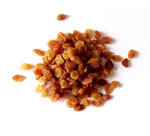Foodborne Illness:
Posted by: admin on: August 10, 2011
Practicing clinicians know that foodborne disease is a common reason for people to seek medical care. It is estimated that almost 48 million illnesses, more than 125,000 hospitalizations, and more than 3000 deaths occur every year because of contaminated food consumed in the United States. That’s a lot of illness.
Many different agents — bacteria, viruses, parasites, chemicals, and toxins can contaminate food. These agents can cause many different clinical syndromes, from fever and bloody diarrhea, to vomiting and watery diarrhea, to sepsis or meningitis — to name just a few.
Gastroenteritis symptoms are the most common presenting complaints in these illnesses, but systemic complications range from hemolytic uremic syndrome to Guillain Barré syndrome to encephalitis with toxoplasmosis — again, to name just a few.
For clinicians, the huge burden of foodborne disease is a reminder to counsel our patients about things they can do to help protect themselves. When you get right down to it, most foodborne diseases are caused by feces getting into food.
Because it’s relatively easy for feces to be on or in raw or undercooked foods of animal origin, these foods — like eggs, poultry, meat, or fish — are common sources of foodborne illness. Raw milk is a particularly hazardous food of animal origin, yet there seems to be a resurgence of interest in drinking it. We should warn our patients against it.
Handwashing is such an important practice — not only for preventing foodborne disease — and it’s worth reminding patients that they should wash their hands before handling food and, of course, after using the bathroom. And for infants, breastfeeding is probably the single most important practice to protect against foodborne disease.
Finally, remember that many infections that are transmitted commonly through food, including salmonellosis, campylobacteriosis, listeriosis, and Shiga toxin-producing E. coli infection, as well as others, are reportable; if you diagnose one of these infections, you should report it to your local health department. Outbreaks can only be detected and investigated if illnesses are reported.
Read more: http://www.medscape.com/viewarticle/735505?src=mp&spon=34
Search
- drchasrani: Difficult to get such a data, authenticated at that. Try Times of India online library
- rakesh pore: hi, where can i get genuine information about "10 most common drugs sold in india?" i want it for a local project
- nilesh dutta: sir, Plz give detail about MBA Sports Management Thanks and Regards


Leave a Reply